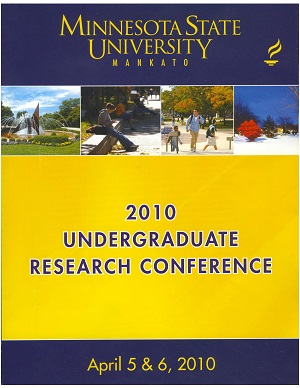More Than a Guy Thing? Going Beyond Gender to Investigate the Influence of Sex Roles on Alcohol Attitudes and Consumption
Location
CSU 201
Start Date
5-4-2010 10:00 AM
End Date
5-4-2010 12:00 PM
Student's Major
Psychology
Student's College
Social and Behavioral Sciences
Mentor's Name
Dawn Albertson
Mentor's Department
Psychology
Mentor's College
Social and Behavioral Sciences
Description
Historically, heavy drinking was seen as a masculine activity and bars were viewed as a man’s territory (Montemurro and McClure, 2005), but societal views are changing. In fact, women are starting to catch up to men in their prevalence of binge drinking (Veal and Ross, 2006). The remaining alcohol consumption gap between men and women could reflect the embedded social roles assigned to each gender (Wilsnack, Vogeltanz, Wilsnack & Harris, 2000). Sandra Bem proposes that males and females may demonstrate various sex roles regardless of their actual gender. In addition to the traditional masculine and feminine traits, Bem offers the idea of androgyny, having characteristic of both masculinity and femininity, and undifferentiated, having neither masculine nor feminine characteristics (Bem, 1974). This project investigated the connection between sex type roles (masculine, feminine, androgynous, and undifferentiated) and alcohol attitudes and consumption among college students. Two hundred and fifty participants completed three surveys. The first, a short form of the Bem Sex Role Inventory (BSRI), assessed an individual’s stereotypical sex role characteristics. The second survey asked the participant to indicate their overall thoughts, attitudes, and feelings towards drinking alcohol (Simons and Carey, 1998). The third required participants to report their previous and current levels of alcohol consumption. It was hypothesized that people displaying classically masculine traits will report higher levels of consumption and more positive attitudes towards alcohol than those showing traditionally feminine traits.
More Than a Guy Thing? Going Beyond Gender to Investigate the Influence of Sex Roles on Alcohol Attitudes and Consumption
CSU 201
Historically, heavy drinking was seen as a masculine activity and bars were viewed as a man’s territory (Montemurro and McClure, 2005), but societal views are changing. In fact, women are starting to catch up to men in their prevalence of binge drinking (Veal and Ross, 2006). The remaining alcohol consumption gap between men and women could reflect the embedded social roles assigned to each gender (Wilsnack, Vogeltanz, Wilsnack & Harris, 2000). Sandra Bem proposes that males and females may demonstrate various sex roles regardless of their actual gender. In addition to the traditional masculine and feminine traits, Bem offers the idea of androgyny, having characteristic of both masculinity and femininity, and undifferentiated, having neither masculine nor feminine characteristics (Bem, 1974). This project investigated the connection between sex type roles (masculine, feminine, androgynous, and undifferentiated) and alcohol attitudes and consumption among college students. Two hundred and fifty participants completed three surveys. The first, a short form of the Bem Sex Role Inventory (BSRI), assessed an individual’s stereotypical sex role characteristics. The second survey asked the participant to indicate their overall thoughts, attitudes, and feelings towards drinking alcohol (Simons and Carey, 1998). The third required participants to report their previous and current levels of alcohol consumption. It was hypothesized that people displaying classically masculine traits will report higher levels of consumption and more positive attitudes towards alcohol than those showing traditionally feminine traits.
Recommended Citation
Timm, Naomi. "More Than a Guy Thing? Going Beyond Gender to Investigate the Influence of Sex Roles on Alcohol Attitudes and Consumption." Undergraduate Research Symposium, Mankato, MN, April 5, 2010.
https://cornerstone.lib.mnsu.edu/urs/2010/oral-session-02/7




